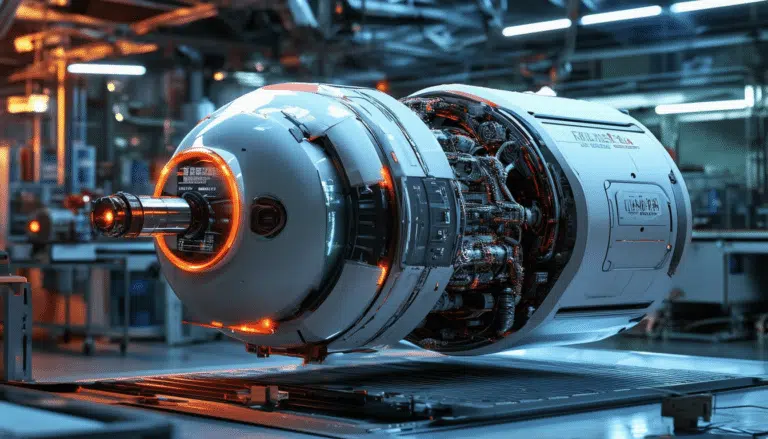Collaborations between companies to minimize fuel costs

In a context where sustainability becomes a fundamental pillar for companies, collaborations between organizations emerge as an essential strategy to minimize fuel costs. This approach not only allows for the optimization of resources throughout the supply chain, but also promotes operational efficiency and cost reduction. By working together, companies can implement innovative solutions that not only benefit their finances but also contribute to a more sustainable future where emission reductions and responsible resource use become the norm.
Collaborations between companies are gaining significant relevance today, especially for those looking to reduce their fuel costs. By joining forces, organizations can develop more efficient strategies that not only improve sustainability but also optimize operational costs. This article will explore how such collaborations can position companies on a path toward energy efficiency.
Importance of collaboration in the supply chain
The collaboration between different entities in the supply chain is fundamental for creating more efficient operational models. Companies can work together to share information about fuel consumption and establish methodologies that allow them to monitor their spending. This not only results in cost reduction but also contributes to the decrease of greenhouse gas emissions.
Joint transportation strategies
One of the most effective ways to collaborate is to align transport and fuel strategies. Companies can choose to share resources, such as vehicle fleets or warehouses, which will allow them to optimize delivery routes and reduce fuel consumption. This integrated approach not only saves money but also minimizes the environmental impact associated with transportation.
Measures to control fuel expenses
To understand how to manage and reduce fuel expenses, it is crucial to implement certain controls. This involves conducting a thorough analysis of the individual consumption of each vehicle within the company’s fleet. Companies can use real-time monitoring tools that allow them to identify consumption patterns and detect improvement opportunities.
Staff training
An essential measure to reduce fuel expenses is staff training. Instructing drivers on efficient driving practices can result in significant savings. For example, avoiding sudden accelerations and maintaining a steady speed are habits that can decrease gasoline consumption. These small adaptations in driving habits can be key to achieving substantial savings.
Technological innovations and their role in efficiency
In addition to collaborations and training, technological innovations play a crucial role in reducing fuel expenses. Some companies are developing software solutions that promise to optimize vehicle performance and reduce consumption. An example of this is the development of TruckY software, which presents itself as an innovative tool to reduce fuel consumption in road vehicles.
Benefits of energy optimization
Optimizing energy savings not only translates into reduced spending but also improves the company’s profitability. As organizations implement more sustainable practices, they begin to see both economic and reputational benefits. This positions them better in a market that increasingly values sustainability and social responsibility.
Examples of effective collaboration
There are numerous examples of companies that have achieved positive results through collaboration. Large corporations are offering discounts on fuel prices through agreements that benefit multiple stakeholders in their supply chain. This demonstrates that it is possible to create a business ecosystem that supports efficiency and sustainability.
In this sense, research on collaborations, as well as the implementation of innovative technology, are helping many companies move toward more efficient fuel management.
Paths to take: towards a sustainable future
With the need to minimize fuel costs and move towards a more sustainable model, collaborations between companies are more relevant than ever. The implementation of joint strategies, staff training, and the use of technological tools are fundamental to achieving success. The pursuit of energy efficiency is not only beneficial for each individual company but also contributes to a broader goal: a more sustainable future for all.
In a global context where sustainability has become an imperative, collaborations between companies play a crucial role in reducing fuel costs. The need to implement strategies that optimize resource use has led organizations to work together to create more efficient models in the supply chain.
Monitoring fuel consumption becomes an essential tool for those companies seeking not only to reduce operational costs but also to contribute to environmental well-being. Implementing technologies that allow for real-time control of spending and using fuel voucher systems are examples of how this challenge can be managed more effectively.
Moreover, it is essential to train drivers in efficient driving habits that minimize fuel consumption. This not only saves money for companies but also reduces wear and tear on their fleet, improving overall performance. Staff training and the use of appropriate tools are vital steps to achieve optimal results.
Another aspect to consider is the smart planning of routes, which allows for more agile and economical transportation. The way deliveries are organized can significantly influence fuel spending, so sharing information and collaborating on logistics becomes essential to maximize benefits.
In summary, strategic collaboration between companies can not only lead to significant cost savings in fuel but also solidifies the commitment to more sustainable practices in the industry. By working together, companies have the capacity to innovate and improve efficiency, which not only benefits their economic interests but also contributes to a more responsible future in environmental terms.




